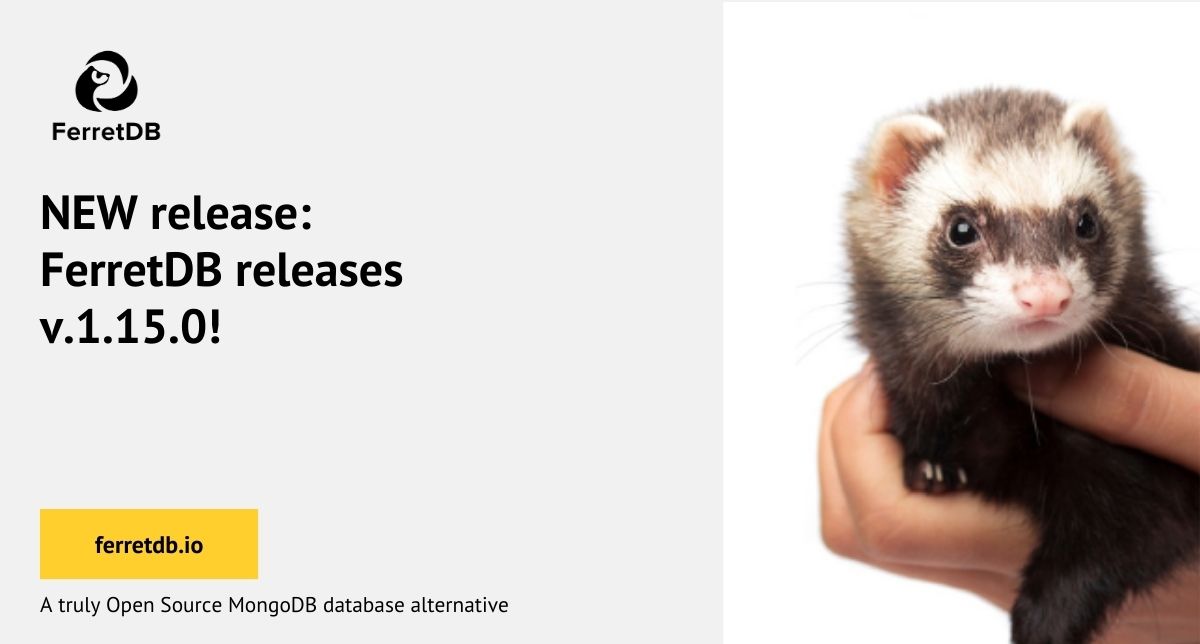
FerretDB is delighted to announce the release of v1.15.0 with support for showRecordIdin find and JSON format for logging.
With the new release, we've changed our artifacts naming scheme; our binaries and packages now include linux as part of their file names.
The purpose of this is to prepare for providing artifacts for other operating systems.
There are other enhancements and changes in this release, including enabling the use of existing PostgreSQL schema, and making it possible to use FeretDB without a state directory.
Let's check them out!
New features and enhancements
FerretDB v1.15.0 comes with support for showRecordId in find command.
This will enable you to view each document's unique storage ID along with its data.
We've also included support for JSON format for logging.
You can find out more details on this in our Observability docs.
Along with these new additions, we now provide an option for disabling the --debug-addr flag.
You can now disable the debug handler if the value of that flag is set to an empty string or -.
See here for more.
Similarly, we've enabled the use of FerretDB without a state directory.
Like the debug handler, you can also disable it by setting --state-dir to an empty string or -.
Some users may prefer to use default schemas like public, so with this release, we've enabled the use of existing PostgreSQL schema.
We've also made it possible to generate SQL queries with comments for find operations.
Documentation
In this release, we've updated our pre-migration page to include extra details on how to specify the --listen-addr and --proxy-addr flags or set the FERRETDB_LISTEN_ADDR and FERRETDB_PROXY_ADDR environment variables.
In addition to this, we've now enabled interactive code playground in FerretDB via Codapi. This will make it possible for users to run FerretDB commands directly from our blog or documentation. Check out this blog post to see how it works.
Other updates
Please see our release notes for more on this release and all its associated packages.
We continue to be overwhelmed by the massive support from the open source community, as we deliver the truly open-source document database alternative to MongoDB. Nowhere is this more evident than in our ever-increasing number of contributors. In this release, we had 4 new contributors to FerretDB: @mrusme, @cosmastech, @chumaumenze, and @ksankeerth. Over the past three months, we've had 24 different community contributors, which is incredible!
Aside from this, FerretDB now has:
- More than 20.9k gchr.io downloads; 500+ downloads on Docker
- More cloud providers (like Vultr, Civo, and Scaleway) offering FerretDB as a managed service
- Over 7.9k stars on GitHub
Your support is greatly appreciated!
Everyone is welcome to contribute to FerretDB via code, bug reports, feature request, or documentation (see our contribution guide for more). If you have questions or feedback on FerretDB, contact us on our community channels.
